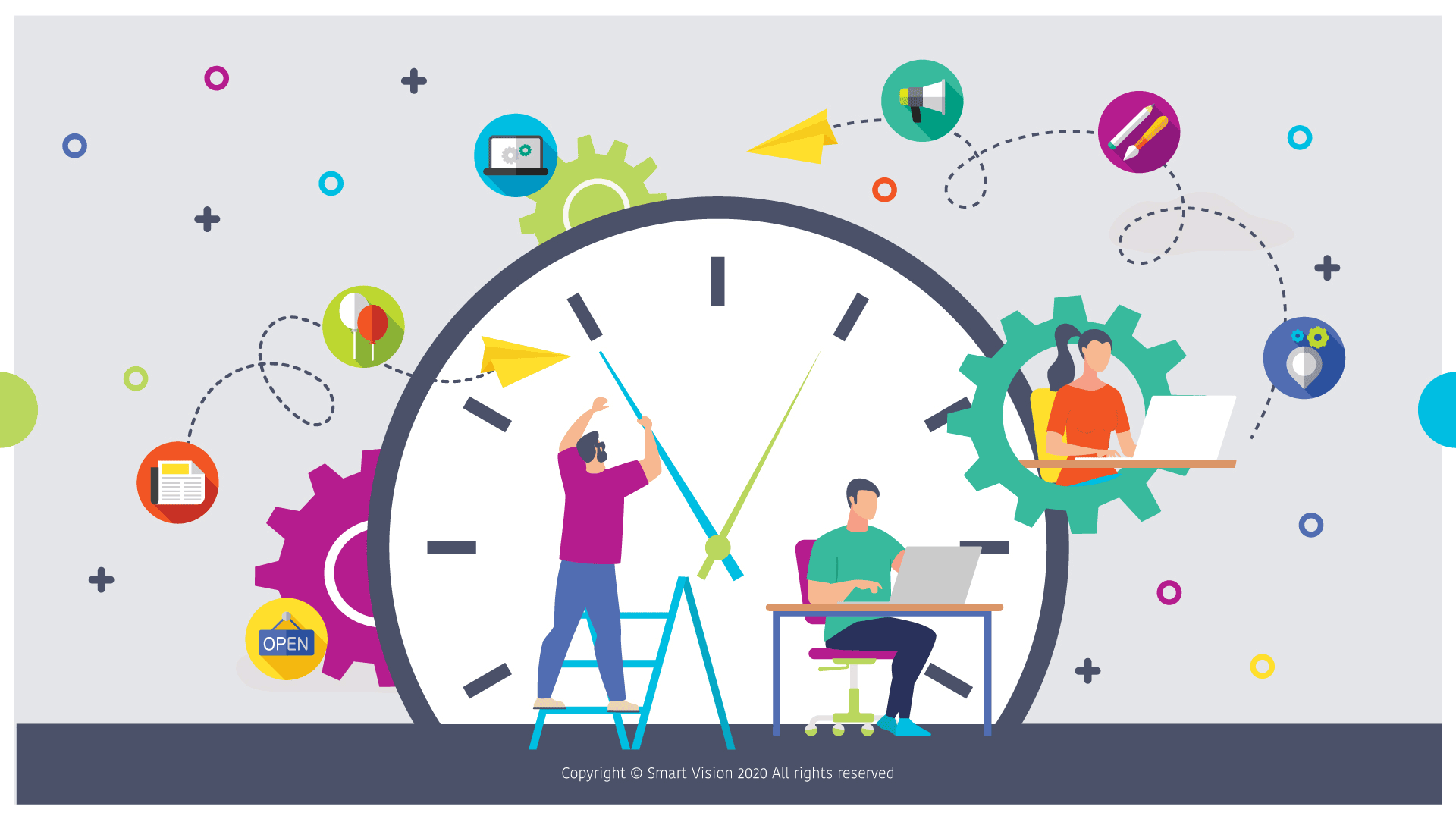To begin with, we must accept the fact that we are all different. Different things drive and motivate us. We have different habits, priorities and working regime. We do not function the same under pressure – short deadlines and the constant presence of authority may motivate someone, while to others may create stress and discouragement. Someone will enjoy background music when working, while someone will be deconcentrated by it. Someone is more efficient when sitting at the office desk, but someone else is more inspired when lying upside down with their feet against the wall. Someone is a morning person and someone is a night bird …
Although it seems that not much has changed (the workday still runs from 9 a.m. to 5 p.m. thanks to numerous tools and platforms we are in constant communication with our colleagues and have all the equipment and technology we need to do our jobs smoothly), then why do we still have the feeling that something isn’t right?
Now that we are working from home, we have to make an extra effort to increase and maintain concentration and productivity in an environment that is not intended for working, but to relax, have fun and hand out with our family.
If you have already created your own home office, now is the time to work on self-discipline! That is why we’ve prepared some tips for you to help you establish a work-life balance and increase your level of productivity.
As different as we all are, there are some universal tips that you may instantly implement.
Let’s go…
1. Create a routine
For many people, working from home is synonymous with lying in bed in pajamas with a laptop in their lap all day. The first mistake! There is a military rule – the first thing that is required in the morning – make your bed. Why? A seemingly simple and irrelevant task… However, when you set up your bed in the morning, it is the first successful thing you have done that day. The first task successfully completed. You will be a little proud of yourself and this will give you the motivation to do something more, something else.
And so, a seemingly simple and irrelevant task will lead to much larger, successfully completed tasks and ultimately, a successful day. On the other hand, if your day doesn’t end well, at least you’ll have a neat and tidy bed in the evening, which will give you hope that tomorrow will be better.
2. Plan your workday in advance
Create a to-do list! List all the tasks that await you the next day. Make sure to include breaks and time to eat in the list as well. But it is important for you to set deadlines and goals for yourself. Set priorities, determine the start and end times of each activity, and strive to meet your own set goals.
It’s all about self-discipline and respect for yourself and your word!
This kind of system will give you a sense of organization and is a great way to monitor your efficiency. What a great feeling it is to see that all tasks are crossed out and completed successfully at the end of the work day, right?
3. Divide tasks into several smaller, simpler activities
Don’t be overwhelmed by the big tasks. Yes, there may be too much work to do, but it’s not impossible! Try dividing them into smaller, easier activities, and take breaks between them.
4. One activity at the time
It may sound weird – but don’t try to multitask! Although it seems that you will do more than one thing at a time, it can often mean that you will do nothing right. Focus on one activity until you are sure you have completed it successfully. Then take a short break and move on.
5. Most important tasks come first
Always tackle the most difficult and important tasks first! At the beginning of the day, while you are still fresh and your motivation is at it’s peak, do your best to complete the most complicated task for the day. The feeling of success will give you extra wind in the back, and after that – all the small tasks will seem like a break.
6. The two-minute rule
If you suddenly get a new task that you know can be completed quickly and easily in less than two minutes, do it now! Do not put it on the to-do list, do it immediately. It has been scientifically proven that you will need less time to resolve it immediately than to return to it later.
7. Take away anything that distracts you
With peripheral vision, you spot a bunch of dirty laundry waiting for it’s turn to be washed or a messy closet that needs to be arranged, or a pet that hangs around your feet. Take it away, sort it out, arrange it – but don’t let it disturb you! Remove from your work environment anything that distracts you and distances you from the work that needs to be completed.
8. The 10 seconds rule
* Beep * Instagram notification. ”Just one little peek” – 20 minutes later, still on Instagram.
Ah, those social networks are wasting our time without us even noticing. Try this, turn off the sound and notifications, and distance your mobile phone so you need minimum 10 seconds to reach it. This way, you will more often ignore the urge to “just look at what’s new. ”
9. Make frequent breaks
Yes, we have mentioned breaks several times in this text! Because they are actually good for your productivity and recharge your batteries. From time to time, get up from your desk, take your eyes off the screen, take a walk, do a mini workout, or just stretch. Talk to your family, cook a meal, freshen up, eat some fresh fruit or drink a lemonade.
But be disciplined, don’t let a short break turn into a vacation.





